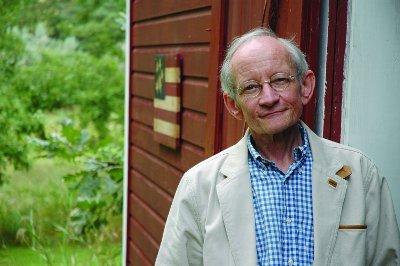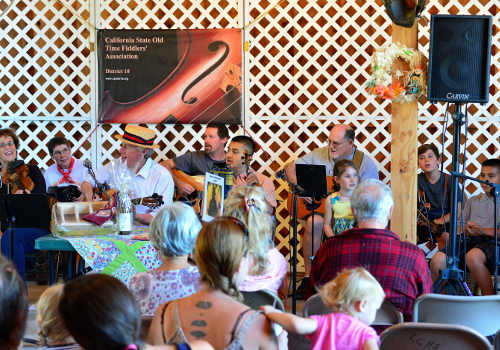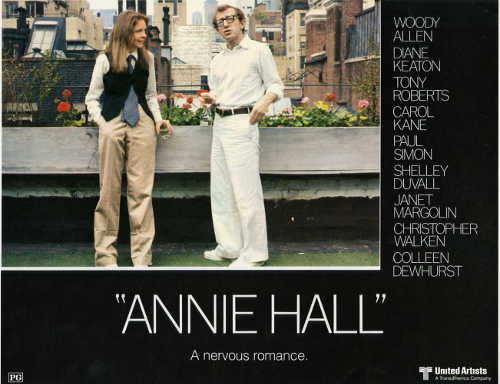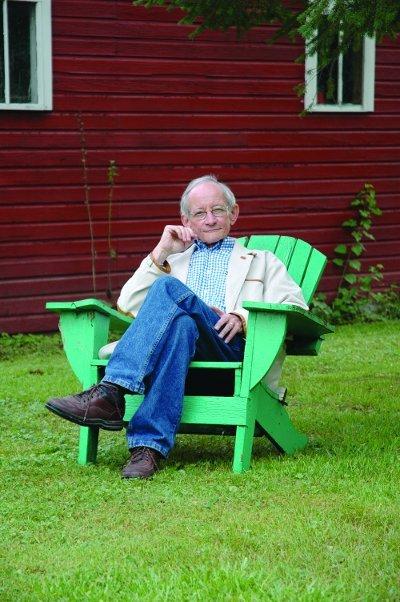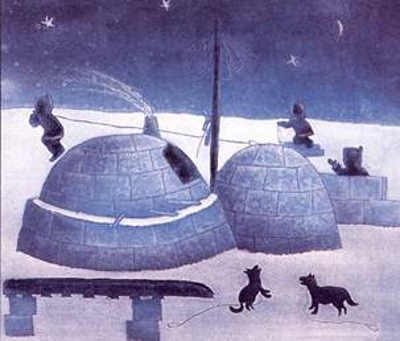
UKIAH, Calif. – From Feb. 11 through March 20, Mendocino College will host an exciting series of events that will explore the Native peoples of the Arctic: the Eskimo and Inuit.
These events will include an exhibit of Eskimo and Inuit art in the Mendocino College Art Gallery, and several free events that will undoubtedly stimulate thoughts and questions related to these cultural groups and the extreme environments in which they have lived and continue to live.
“I have been studying and traveling to many arctic regions for quite some time, and as a professor of Native American Art have become fascinated with these extraordinary cultural groups who have lived in North America’s harshest environments for thousands of years,” said Leslie Saxon West, exhibit curator and coordinator of this event. “I was eager to expose our college students and the community to the art that has been produced, past and present, by Native inhabitants of these regions, but in order to really understand their art, one needs to understand the people, their history, beliefs, traditions, and environment.”
She added, “When I was thinking about what to call this project, I imagined the many arctic communities I have visited and the landscape, which at first glance is stark. But within the starkness is extraordinary abundance, abundance of beauty and abundance of life. 'Stark Abundance: Through the Eyes of Arctic First Peoples' examines this abundance as it relates to plants, animals, geology, ecology, as well as spiritual beliefs, and human ingenuity and creativity.”
The first event to unfold is an exhibit, which opens on Feb. 11, 4 to 6 p.m. in the Mendocino College Art Gallery, that focuses on art produced by Eskimo and Inuit peoples of the United States and Canada, art that speaks to and mirrors what they see as crucially important – family, land and sea, animals, the spiritual world, and how they are all interconnected.
Those coming to the exhibit will see a variety of pieces including objects made of stone, bone, antler, and baleen as well as Inuit prints, drawings, and tapestries, Eskimo dance masks and regalia, and utilitarian objects made of fish skin, animal organs, and animal hides.
Since Arctic communities are very cold and mostly made up of rock and ice, Arctic people have always survived on sea and land animals alone.
Native peoples of the Arctic have an intimate and spiritual relationship with animals. Animals are not taken for granted and the native peoples feel that they are honoring the animal that has given itself by utilizing every part of its body.
Bones, muscles, ligaments, teeth, internal organs, hides and even whiskers, were traditionally utilized for food, clothing, tools, heat and to construct dwellings. People of the Arctic have always lived sustainably, taking only what they need to survive.
On Tuesday, Feb. 16, from 5 to 8 p.m. in the Mendocino College Art Gallery, Yup’ik artist Drew Michael, from Anchorage, Alaska, will give a presentation on Yup’ik mask and dance traditions and will talk about his own journey as a Native Alaskan in today’s world, and how his art is helping him connect with his heritage.
On Saturday, Feb. 20, from 10 a.m. to 1 p.m. in the Mendocino College Little Theatre, art, science and history come together as Mendocino College educators Steve Cardimona, professor of Earth sciences; Alan West, professor of biology and marine sciences; Rebecca Montes, professor of history; and Leslie Saxon West, professor of Native American art and dance, team up to discuss arctic ecology and how it has changed over the last century, the historical events affecting Arctic first peoples, and how these events are mirrored in the art that is produced in these areas.
Government politics and history, as it relates to Arctic first peoples will be explored on Friday, March 4, from 6 to 9 p.m. in the Center for Visual and Performing Arts room 5310, when a series of documentary films will be presented.
These films will address the displacement of Inuit and Eskimo families by the US and Canadian governments, the loss of the nomadic lifestyles perpetuated by the slaughter of sled dogs and other poignant topics.
Finally, on Saturday, March 12, from 10 a.m. to 1 p.m. in room 5310, Leslie Saxon West presents “Sustainability, Survival, and the Sacred: Through the Eyes of Arctic First Peoples,” a multimedia exploration of the integration of art and a subsistence-based life in the Arctic.
This exhibit and project were made possible with the generous support of the Mendocino College Foundation, Khoury Dentistry, Phyllis Curtis, Daniel Saxon and Channing Chase.
All events are free and open to the public.
The Mendocino College Art Gallery is open on Tuesday, Wednesday and Thursday from 12:30 to 3:30 p.m. or by appointment, and school and group tours may be arranged by calling Leslie Saxon West at 707-468-3079.
For additional information go to www.mendocino.edu/the-arts/art/art-gallery .
